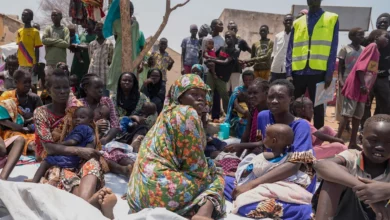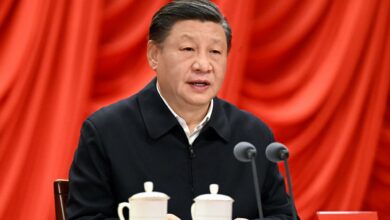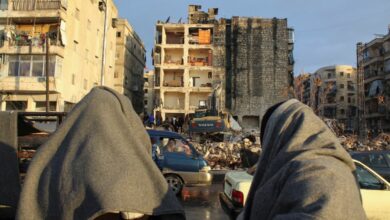
Syrian President Bashar al-Assad said there is no "option except victory" in the country's civil war in an interview published on Thursday, saying the government could not reach "results" with opposition groups that attended recent peace talks.
The interview with Croatian newspaper Vecernji List appeared to have been conducted before U.S. President Donald Trump accused Assad of crossing "many, many lines" with a poison gas attack on Tuesday.
Assad was not asked about the chemical attack in the northwestern Syrian town of Khan Sheikhoun, a text of the interview published by the Syrian state news agency SANA showed. The government has strongly denied any role.
More than six years into the Syrian conflict, Assad appears militarily unassailable in the areas of western Syria where he has shored up his rule with decisive help from the Russian military and Iranian-backed militias from across the region.
The interview published on Thursday underlined Assad's confidence as he reiterated his goal of dealing a total defeat to the insurgency. He also reiterated his rejection of federalism sought by Kurdish groups in northern Syria.
"As I said a while ago, we have a great hope which is becoming greater; and this hope is built on confidence, for without confidence there wouldn’t be any hope. In any case, we do not have any other option except victory," he said.
"If we do not win this war, it means that Syria will be deleted from the map. We have no choice in facing this war, and that’s why we are confident, we are persistent and we are determined," he said.
More than 70 people, including at least 20 children, were killed in the chemical attack on Tuesday.
The Russian allies say the deaths were caused by a leak from an arms depot where rebels were making chemical weapons, after it was hit in a Syrian air strike. Rebels deny this.
Rebels have in recent weeks launched two of their boldest offensives in many months, attacking in Damascus and north of the government-held city of Hama. The army says both assaults have been repelled.
Assad, citing recent rebel offensives in Damascus and near the northern city of Hama, said "the opposition which exists is a jihadi opposition in the perverted sense of jihad".
"That is why we cannot, practically, reach any actual result with this part of the opposition (in talks). The evidence is that during the Astana negotiations they started their attack on the cities of Damascus and Hama and other parts of Syria, repeating the cycle of terrorism and the killing of innocents."
The Russian-backed Astana talks were launched with support from Turkey, a major backer of the opposition to Assad. They sponsored a ceasefire between the government and rebels which has been widely violated since it was declared in December.
A new round of indirect peace talks concluded in Geneva in late March without any major breakthrough towards ending the conflict that has killed hundreds of thousands of people and created millions of refugees.
The Syrian government views all the groups fighting it as terrorists with agendas determined by foreign governments including Turkey, Saudi Arabia, Qatar and the United States.
Writing by Tom Perry; Editing by Hugh Lawson; Reuters




